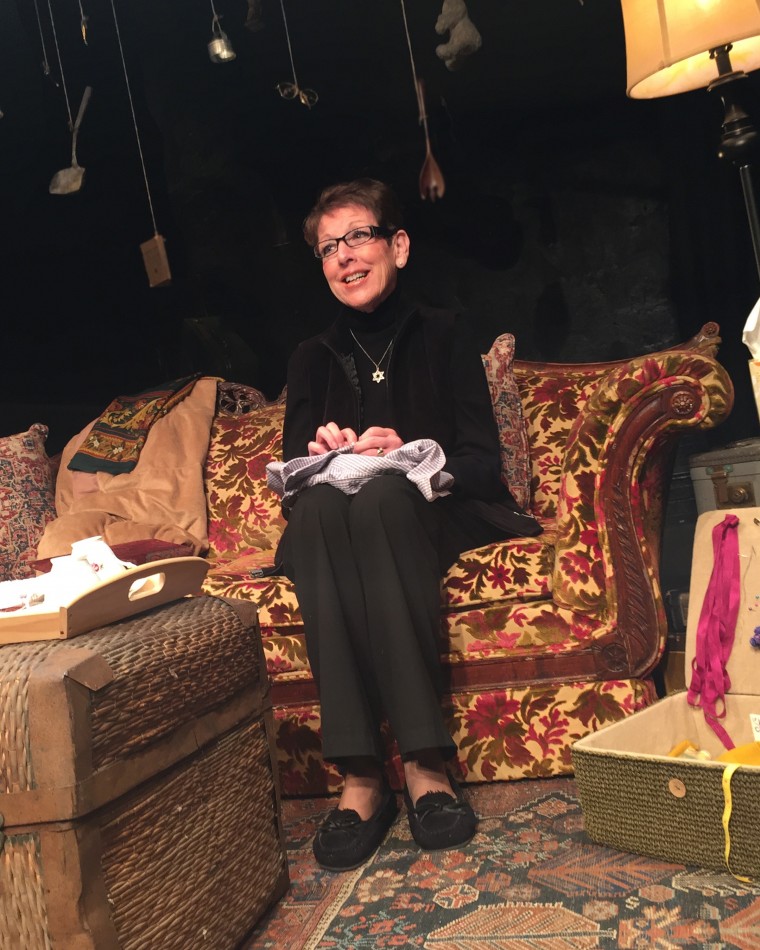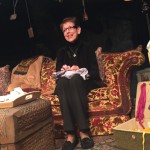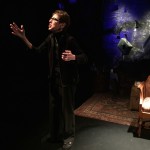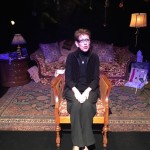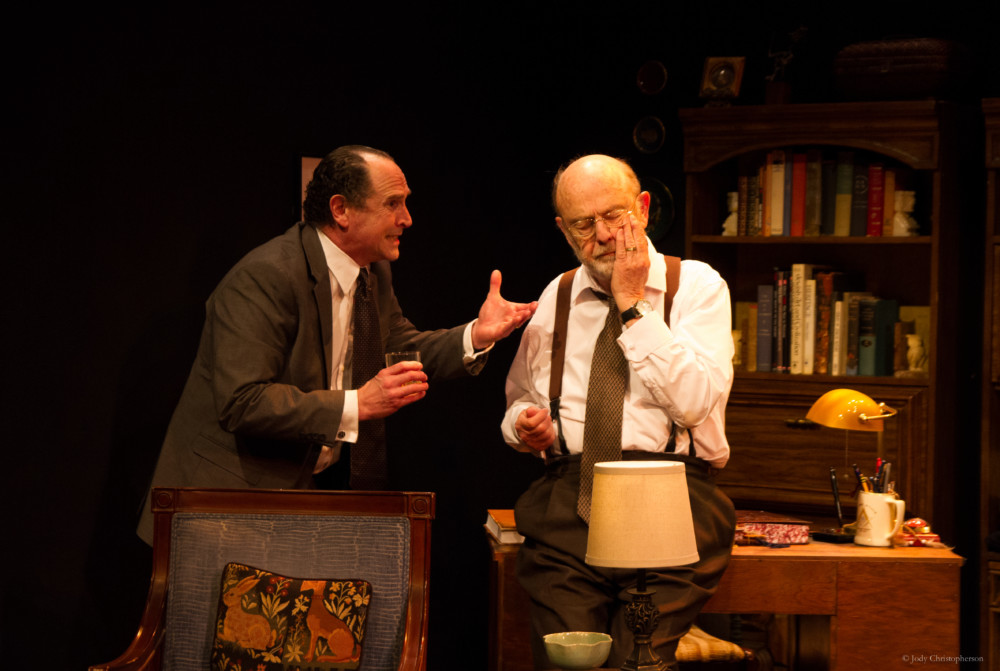Review by Samuel L. Leiter
In 1994, the Shoah Foundation was founded by Steven Spielberg to document the testimonies of Holocaust survivors. The same year, survivor Janka Festinger, a Jew born in Sighet, Romania, died at her New Jersey ranch house. Had she lived she might have provided Shoah with her memories, along with those of the 52,000 others videotaped between 1994 and 1999.
Fortunately, Janka’s son, TV producer Oscar Speace, who had never heard from his mother the details of the horrors she and her two sisters, Betty and Gizi, underwent, learned from his Aunt Betty of a manuscript Janka had written at an uncle’s bequest; Janka had told Speace of it when he was a child but she thought it lost. Written in Hungarian (spoken in Sighet), it was translated by Nora Szabo DeWitt and became the seed of Speace’s Janka, a solo play starring his non-Jewish wife, Janice Noga, portraying her late mother-in-law.
Janka, directed by James Phillip Gates for the Roust Theatre Company in the Speaces’ home town of Fresno, California, was subsequently given over 100 performances in six countries, including a production by the Jewish Theatre of Bucharest. Interestingly, Noga, who had memory issues following the removal of a brain tumor, originally presented the two-act, hour and a half play by using a reading stand. For the New York production, however, she set herself to memorizing the role and, despite several minor stumbles, was letter perfect when I attended. This was as much a testament to her own powerful determination to do Janka’s story proud, as it was to the ability of Janka herself to somehow survive the unbelievable cruelties of two concentration camps and forced labor in an ammunition plant.
At this date, most educated people have some idea of what went on in those hellholes. Numerous plays, films, and books have covered the ground, although there are always new revelations surfacing. Just last week, the New Yorker carried a lengthy review about two important new books describing the camps’ operations. Janka doesn’t really tell us anything we don’t know, or that those 52,000 witnesses don’t touch on. Still, the experience of listening to the nightmare described in the actual (albeit translated) words of someone who lived through it can be mesmerizingly compelling. The playwright, with whom I had the pleasure of a brief preshow conversation, was himself in tears at the end, despite all the performances he’s seen. Criminally, there weren’t enough audience members even to form a minion.
While Janka’s principal contribution is to expose the brutality of the Nazis, and to underline the fortitude it required to survive beatings, extremes of heat and cold, starvation, filth, disease, sexual molestation, sleeplessness, overwork, and humiliation, only half the piece is specifically about the Holocaust. Moving back and forth in time, it also recounts the joys of liberation, followed by Janka’s happy postwar life as an American war bride, telling of how she met and married her non-Jewish soldier husband, Bob, of her twin sons, Oscar and David, and of other family matters.
On a stage dressed (by designer Richard Hoover, nicely lit by Travis Sawyer) with living room furnishings, and backed by a large mobile hung with personal and Jewish artifacts (including a yellow Star of David), Janka, dressed simply in loose black slacks and a black top, talks to us in her pleasantly lilting, lightly (and, I’m afraid, inconsistently) accented English. She’s depicted—a bit distractingly—as both a living person and a dead one, insofar as she often refers to events that haven’t happened yet, such as her physical ailments and death.
It feels churlish to criticize a work so obviously the product of sincerity, love, and devotion, and on so sensitive a subject, but I do think Janka would be improved if it were condensed to a single act running only an hour or so, with less emphasis on the postwar family material. And, despite her engaging presence as a vibrant, grandmotherly figure, Noga’s performance—at least at sparsely attended shows—would be enhanced if she were to look directly at audience members rather than speaking to empty chairs.
Janka never forgave the Germans. Would you?
Photos: Raymond Reilly
Janka
June Havoc Theatre 312 W. 36th Street NYC
Through May 2


